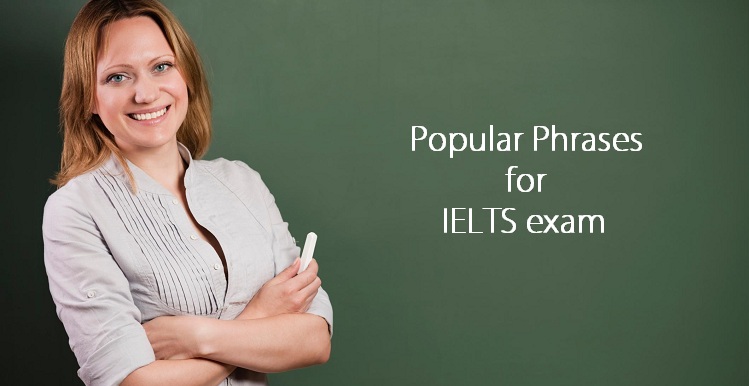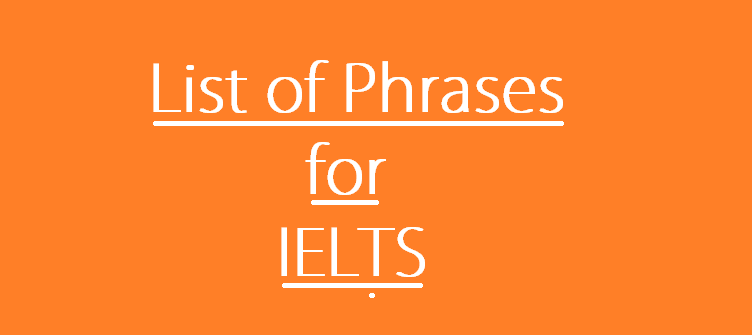Phrases For IELTS Exam 2017
Phrase is a small group of words standing together as a notional unit , typically forming a component of a clause. Phrases are useful in IELTS exam as it helps the candidate to express more clearly. People want to learn phrases for IELTS exam to make their sentences more attractive and clear.
Use of phrases will help you to express in a smart manner to an interviewer. This means that you are saying a same thing, but in a different style. Maybe you felt you did not explain something properly to the examiner or you just want to signify your point.
So, here is the way you can use phrases for IELTS exam 2017:
1. Saying Something In Another Way
Examiner: Some people think that television gives a negative impact on children.
What do you think about it?
Candidate: I tend to disagree, I feel children should be given freedom to decide what they want to watch. In other words, it is upto the child, not the parent.
Also Read: IELTS 2017: List Of Idioms With Sentences
2. Getting asked for an opinion/ agreeing with an opinion/ disagreeing with an opinion
You may use this phrase if the examiner asks you for your opinion on a particular topic.
Examiner: Some people think that television gives a negative impact on children.
What do you think about it?
Candidate: I wouldn’t say necessarily true. Most children are mature enough to understand that what they are watching is not true or real so i don’t agree on this that television causes any harm.
3. Slightly Agreeing With An Opinion
You may not agree with this fully and wish to explain it further.
Examiner: Some people think that television gives a negative impact on children.
What do you think about it?
Candidate: I don’t entirely agree . It is true that some program can cause harm to children. For eg. children watching programs with very violent behavior, so parents must ensure that children should not watch these kinds of program. However, there should be a balance where children should be given responsibility to make their own decisions.
Also Read: Vocabulary for IELTS exam
4. Your Opinion May Vary According to the situation
It is often that your opinion may vary from an examiner’s opinion. It is never that simple or straight forward that you agree or disagree. It is usually depends on a context you are talking about or particular situation or a person.
It is common to say ‘ depends’ when this is the case :
Examiner: Some people think that television gives a negative impact on children.
What do you think about it?
Candidate: I think It really depends on the way the child has brought up. Some children are brought up well by their parents and they know what is right and wrong and I don’t think watching programs that have violence, will change anything.Watching violence on TV may make them even worse, if they already have a bad behavior. So according to me they do not need to be monitored.
It is common to say ‘ depends’ when this is the case :
Examiner: Some people think that television gives a negative impact on children.
What do you think about it?
Candidate: I think It really depends on the way the child has brought up. Some children are brought up well by their parents and they know what is right and wrong and i don’t think watching programs that have violence will change anything.Watching violence on TV may make them even worse, if they already have a bad behavior. So according to me they do not need to be monitored.
So use these phrases for IELTS ,whenever required while conversing with the examiner. They will give a smart approach and you will be able to express yourself smartly. Practice hard for IELTS exam and score high bands.





